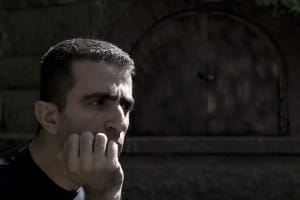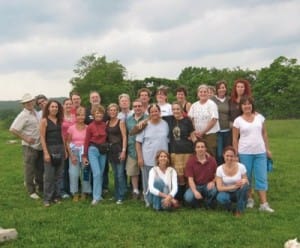By Timothy L. Hook, LMSW, CSAT-C, Primary Therapist at The Ranch Trauma and PTSD can devastate individuals. It also pulls families apart. I know this all too well, not just as a counselor at The Ranch, but as someone who’s been exposed to it through childhood trauma and military deployments. You’d think that 14 deployments into conflict would cause the greatest trauma in my life but it was actually my early exposure to a father who was suffering so much that he couldn’t be there for me. My dad was a Vietnam vet and he had terrible war flashbacks that sometimes made him become violent. On occasion, he pushed me on the floor in our home and threatened me. He thought I was an enemy intruder. He was lost in lost in a world of rage and addiction that we would later come to understand was PTSD. But I became lost, too ― and I would later have my own flashbacks. Repeated trauma at home led me to an unhealthy coping mechanism in my teens — rage. I was an angry young man. I turned to the military to get away from what I’d experienced as a trapped existence, and to see the world. I had all the qualities they look for in recruits: I was full of rage, grew up trusting no one and had been raised to man-up to anything life threw my way. Having been raised by a man scarred by PTSD, the seed had been planted for my own maladaptive behaviors. Once I enlisted, the military drummed out any normal emotional responses to trauma and encouraged me to deeply hide pain, stress or weakness. As a result, my bottled up emotions found their way out through rage. Some people become addicted to substances. I became addicted to the adrenaline rush that came with an outburst and was in an environment that supported it. But at some point I couldn’t function anymore. Long absences from my family while deployed created distance yet when home I was emotionally unavailable and couldn’t provide nurturing. Military marriages suffer because the qualities desired for the job are incompatible with family life. Yelling and screaming at people and unemotional thinking are qualities needed to survive in war but not at home. I could only relate to myself as through my façade of Sgt. Hook. One day my very wise wife said: “Don’t treat me like one of your men.” Her words seemed harsh but I needed to hear them because she helped me realize it was time to learn about being a civilian. The journey led me to my work at The Ranch.
Stepping Onto a Healing Path
We all have our own personal traumas but one thing is true: We must look at the source of our problems in order to find a way out. Here are some keys to recovery. Understand Attachment. Life is shaped by the way primary caregivers take care of our needs. If they are not loving and nurturing, and are instead distant or neglectful, it stops normal development in an infant. My dad used to say, “Just let a baby cry themselves to sleep. That’s the way I did it and you turned out fine.” He may have thought he was giving me a character-building challenge, but studies show when a baby’s needs aren’t consistently met, issues with closeness and trust follow them to adulthood. Explore childhood trauma. There may be an event, a series of incidents, or chronic exposure to abuses that can formulate or contribute to trauma. Some people know what or who hurt them and others must dig deeper. In my household, there was violence, addictive behavior and a tough-love culture. It impacted my ability to trust people and also to ask for help. Once I recognized it, I could work on it. Uncover core beliefs. Childhood messages form self-image and beliefs about ourselves and life. These beliefs drive our behaviors. For example, my negative core belief was, “I’m not good enough.” I came to see that constant deployments were my attempt to prove I was good enough. But since the military honors the ultimate sacrifice — death in defending our country ― I had anger toward myself because I kept surviving. Surviving, in my thinking, meant I wasn’t good enough. Find help as soon as you can. There’s a moment when you know you cannot continue. For me it was in 2007. I found myself in uniform, at 7 a.m., sitting in the driver’s seat of my car and trying to rip the steering wheel from its base in a rage. When I finally calmed down, I didn’t know where I was or where I was going. Even though I’d been stationed on that base since 1991 and knew where my squadron building was, I could not figure out what was happening for 45 minutes. That’s when I decided I needed to get help because of my memory problems. It didn’t even dawn on me that I had a rage problem. Later, I started a PTSD support group with five others on the base when we all realized we were going through the same thing. The group, along with individual therapy, helped me change the course of my life. Look for ways to reinvent yourself. With no clue about how to integrate back into civilian life I decided to get an associate in applied science degree because the military offered tuition assistance. I was drawn to social work and started taking classes for my bachelor’s and then went on to a graduate program. Though I wasn’t sure where the journey would lead, I knew that this would be part of my own healing, too. The Ranch offered me an internship during and after my master’s degree program and I was asked to stay on as a counselor. Being able to help others brought new meaning to my life. If someone predicted that I would leave the military and devote myself to helping people understand trauma, PTSD and addiction, I wouldn’t have believed it. How could someone who is living those things help others? What I’ve learned is that the gift of my own trauma is empathy ― a quality that goes a long way in understanding and addressing the needs of others.


